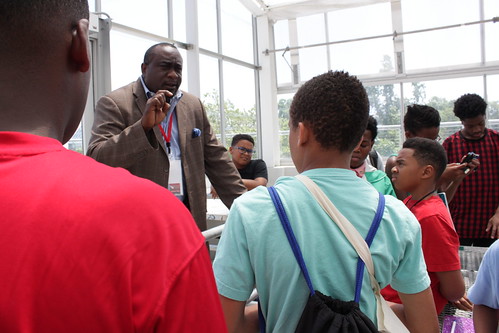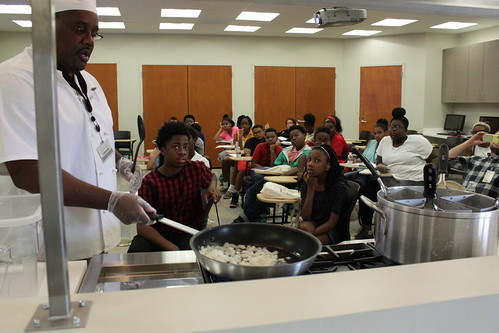
USDA and the Governance Lab at New York University (GovLab) are teaming up again to design and deliver a “summer camp” in 2017 for middle- and high-school students that focuses on using Open Data related to Science, Technology, Engineering, Agriculture, and Math (STEAM).
The Open Data STEAM Summer Camp program, begun in 2016, is an immersive two-week project-based and team-focused learning experience for students in the Washington, D.C. area. The program aims to help these students build familiarity and hands-on competence with the approaches, tools and analytical techniques relevant to harnessing the power of open data on critical issues related to food and agriculture.
In preparation for 2017, an Open House will be held on from 4-6 pm on Friday March 14 on the patio of USDA’s Whitten Building at 1400 Independence Ave. SW. Interested parents, students, and both current and potential partners are encouraged to attend.
Agricultural work in the future will be increasingly driven by data, so there is strong support at USDA for encouraging students to master data skills. Experience-driven learning opportunities help them develop an interest in working with data as well as confidence in doing so. The guiding principle has been simple: if such interest, excitement and confidence can be kindled, the odds go up that these students will make course and career choices touching on data and agriculture.
“As more government data becomes available, we need citizens to be able to use it effectively,” says GovLab Director Beth Noveck.” The USDA Open Data summer program is a great opportunity to test and validate a curriculum and pedagogy that can get youth excited about working responsibly with data.”
Last year, student projects harnessed actual USDA-provided data sets as well as original research to focus on issues of urban agriculture, urban forestry and food safety.
Urban Forestry—Student teams used open data to map the trees planted in Washington, DC, and then to analyze the benefits of those trees in helping to prevent flood and storm damage, boosting energy savings through moderation of local temperatures and reducing pollution.
Urban Agriculture—Teams looked at the ways in which community gardens impact “food deserts” in local neighborhoods, as well as how they substantially reduce the distance food has to travel from farm to table, that, in turn, helps to reduce both pollution and the loss of food nutrient value.
Food Safety—Teams focused on identifying what can easily be done in the home to present food-borne illness as well as on the policy approaches that are most effective in assuring the safe operation of restaurants and food trucks.
In support of these efforts, on-site faculty provided ready guidance on the kinds of questions that can be addressed with data, on the challenges of gathering data through interviews and surveys, and on the techniques for presenting compelling arguments based on data. All students got to work extensively with Excel, Tableau, Illustrator and ESRI’s Collector application for creating GIS maps.
Last summer, students and parents were clearly excited by the experience provided at the summer camp. Yes, the program was hard work; but the confidence that comes with the mastery of data and narratives based on data made it all worthwhile.
Read more about the camp last summer and other educational opportunities for youth on the USDA Blog.




